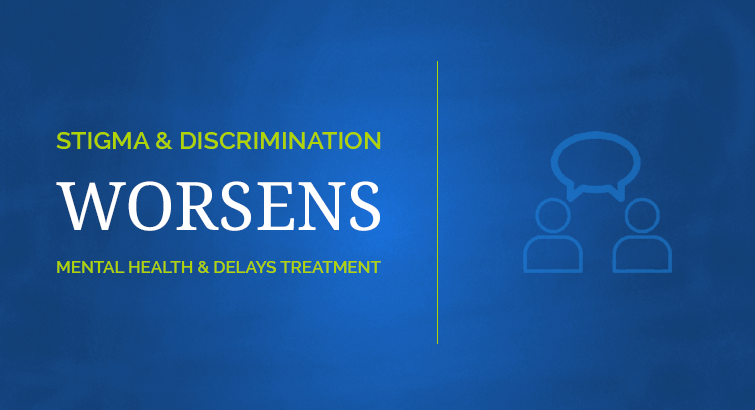|
Addressing mental health issues through the raising of public awareness on how to better cope and assist those who are suffering from mental illness is a growing priority for Heal Guyana, given the stigma and discrimination surrounding this issue. An important aspect of creating a solution requires that we challenge our attitudes toward mental health, while learning how to support those who may be afflicted. Despite how common mental illness is within our society, misunderstanding and stigma continues to raise its head and this was clearly demonstrated a few weeks ago. During the launch of a new building relating to the Master’s in Clinical Psychology program, a young lady went up onto the stage and had what we psychologists call ‘an episode’. It was unexpected and a little frightening, even for someone who has worked in the field for a number of years. I was impressed by the way in which the situation was initially dealt with; as health professionals who were in attendance rushed toward the stage to shield the young lady from the rest of the audience. The Mistress of Ceremonies, as a means of protecting the victim, asked the news sources that were present to not publicly broadcast that particular aspect of the event and the young lady was immediately taken to be treated. This I thought to be a step forward for Guyana’s level of awareness and intervention. However, a few days later, I began to see amateur videos of the episode popping up on social media, as a consequence of people who recorded the occurrence on their personal phones and cameras and, despite the request for desecration, shared the video anyway. A course of action which demonstrated a total lack of compassion, in addition to creating further suffering in a number of ways for the young lady who was struggling with her recovery. There are specific things that ought to be done for those who are suffering from mental health issues within our community. Please read on so that you may be better equipped to make a massive difference in the lives of those who are battling with this issue. It is always disheartening when you realize that an acquaintance, friend or family member may be suffering from mental illness. You would know exactly how to handle the situation if it were a bad flu but you may be overwhelmed and stumped on how to handle cases of mental illness. This is quite common and you are not alone. The good news is, like any other illness, simply showing the willingness to help with extra love and support will go a long way. The World Health Organization says 1 in 4 adults and 1 in 10 children will experience mental health issues at some point in their lives. It is becoming exceedingly common and therefore, having a proper understanding of these illnesses is imperative. The words mental health illness strikes up many negative emotions such as fear or discomfort. Educating yourself about the facts on mental health issues will allow acceptance of the reality, as well as the banishing the myths and stereotypes. Understand that mental health is no different from physical health, in the sense where it can malfunction occasionally, and even though it may be inconvenient or can pose daily obstacles, it can be managed and treated. You should challenge the incorrect beliefs and language of others; what good is your newfound knowledge if it is not used to educate others? Stigma and discrimination worsen mental health issues and delays treatment attempts which, in turn, affects the sufferer, their loved ones and society on a whole. Everyone can start by opening a safe space for genuine, non-judgmental dialogue. An important aspect is knowing when to lovingly intervene. If you have been worried about a loved one and they have been exhibiting the common predictor signs such as isolation, losing interest in previously enjoyed activities, hearing voices or seeing things that aren’t there, in addition to experiencing changes in mood as well as eating and sleeping patterns; then, it is advisable to intervene. If they suddenly show a decrease in self-esteem and an increase in feelings of hopelessness, it is also okay to intervene. Set aside private time in a comfortable place. There are a few common and welcoming ways to begin such as “I’ve noticed you have been going through some changes, is there anything you would like to talk about?” or “I have been worried about you, is there anything I can help you with?” Let them share as much or as little as they choose. No pressure should be put on anyone to talk if they do not want to and if they do not that is fine. Be patient, they will remember you as an option when they are ready to talk. If and when they do talk, listen and empathize with respect and understanding. Stay calm, no matter how upsetting certain things will be to hear. Once you remain collected, so will the person who is confiding in you. Be aware of the common signs and symptoms that they may bring up but do not diagnose them or come up with solutions that may not be accurate or may bring discomfort to your loved one. At that moment, just ask how they would want you to help them. This allows them space and rises to self-awareness which creates an opportunity for them to decide what kind of help they feel is needed. Support a healthy lifestyle and healthy coping skills. This may mean that you may need to practice these yourself. Keep your limits in mind. If you feel as though you are not equipped to handle the situation, you should suggest professional help. Familiarize yourself with the help available within your community, so you have suggestions if they do ask. If they agree, help them to make appointments with available mental health professionals and go with them, if that support is asked for or required. Make a crisis or emergency plan that you both agree to. For example, you can both agree where you are going to go if the situation ever gets out of hand. Unfortunately, you cannot force someone to talk to you or to seek help, you can merely make suggestions and be there when that person decides to make the necessary changes. Remember that while their mental health issues are important, your loved one will also still be a person with many other things to talk about. Have normal everyday conversations that may not surround their mental health from time to time. Do not feel guilty if you intervene in the right way. You do not need special training to show someone that you care or that you are worried about them. Just like physical illness, getting help early is important for the treatment of mental health issues. Supporting someone with mental health problems is challenging and may even bring up your own, personal issues. Remember to look after yourself, so that you are in a position to help someone else. If you need some practical ideas on how to go about this, visit the Heal Guyana social media page to find seven (7) easy to follow tips on how you can begin to practice self-care. > Go there now. If you feel as though you are suffering from mental health issues and may be in need of support, speak up and be heard. It may feel as though you are still a long way from understanding mental health. But a good first step would be to challenge yourself to be unafraid or unashamed to accept the reality of the situation. Even the smallest step in the right direction is a reason to celebrate. Our greatest fear should not be that we feel hopeless. It should be that we possess the power to do so but fail to try.
0 Comments
|
About Us:Heal Guyana is a registered, not-for-profit organisation which functions as a civil society platform that focuses on empowering Guyanese and influencing citizens toward positive behavior change. Disclaimer:The views expressed herein are those of the Author; they do not necessarily reflect the views of Heal Guyana or its Executives. |




